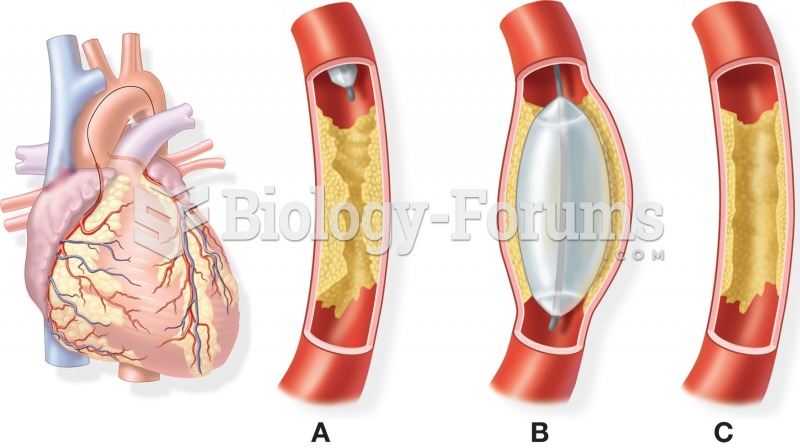|
|
|
Aspirin may benefit 11 different cancers, including those of the colon, pancreas, lungs, prostate, breasts, and leukemia.
Adults are resistant to the bacterium that causes Botulism. These bacteria thrive in honey – therefore, honey should never be given to infants since their immune systems are not yet resistant.
The word drug comes from the Dutch word droog (meaning "dry"). For centuries, most drugs came from dried plants, hence the name.
Of the estimated 2 million heroin users in the United States, 600,000–800,000 are considered hardcore addicts. Heroin addiction is considered to be one of the hardest addictions to recover from.
More than one-third of adult Americans are obese. Diseases that kill the largest number of people annually, such as heart disease, cancer, diabetes, stroke, and hypertension, can be attributed to diet.
 Balloon angioplasty: (A) deflated balloon catheter is approaching an atherosclerotic plaque; (B) pla
Balloon angioplasty: (A) deflated balloon catheter is approaching an atherosclerotic plaque; (B) pla
 Over the past four decades, the self-reported health of married men and women has remained high, ...
Over the past four decades, the self-reported health of married men and women has remained high, ...





